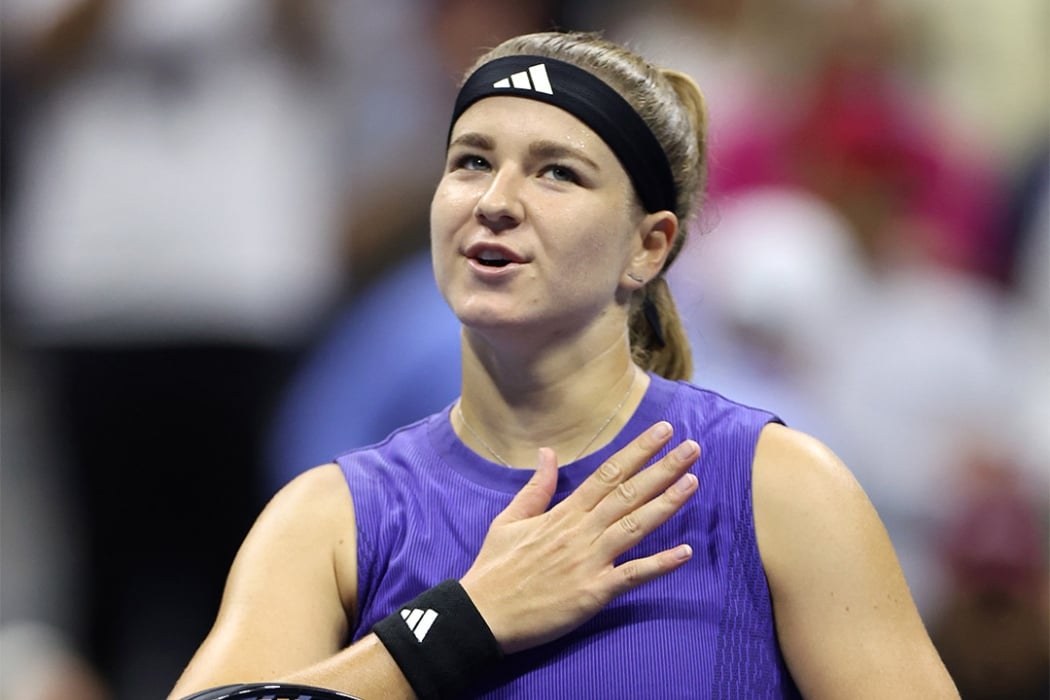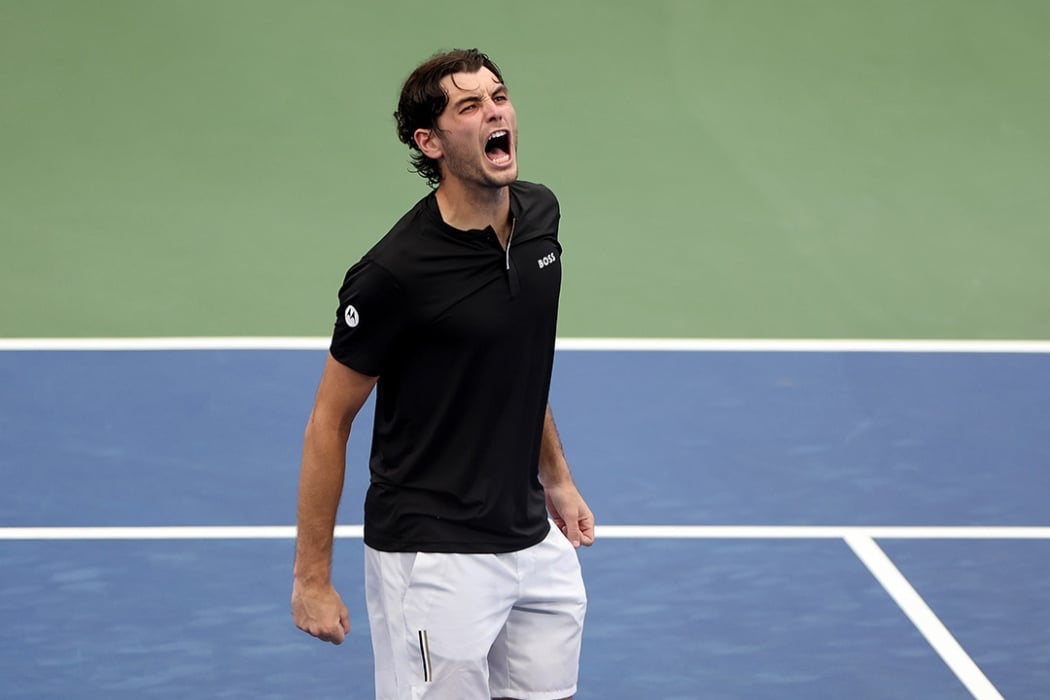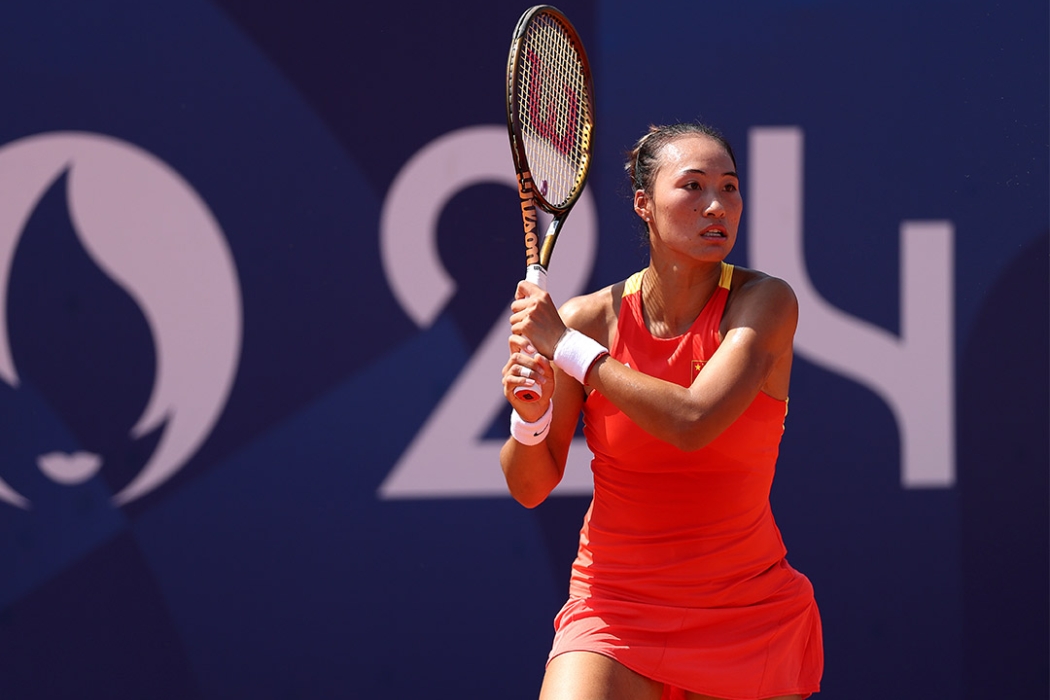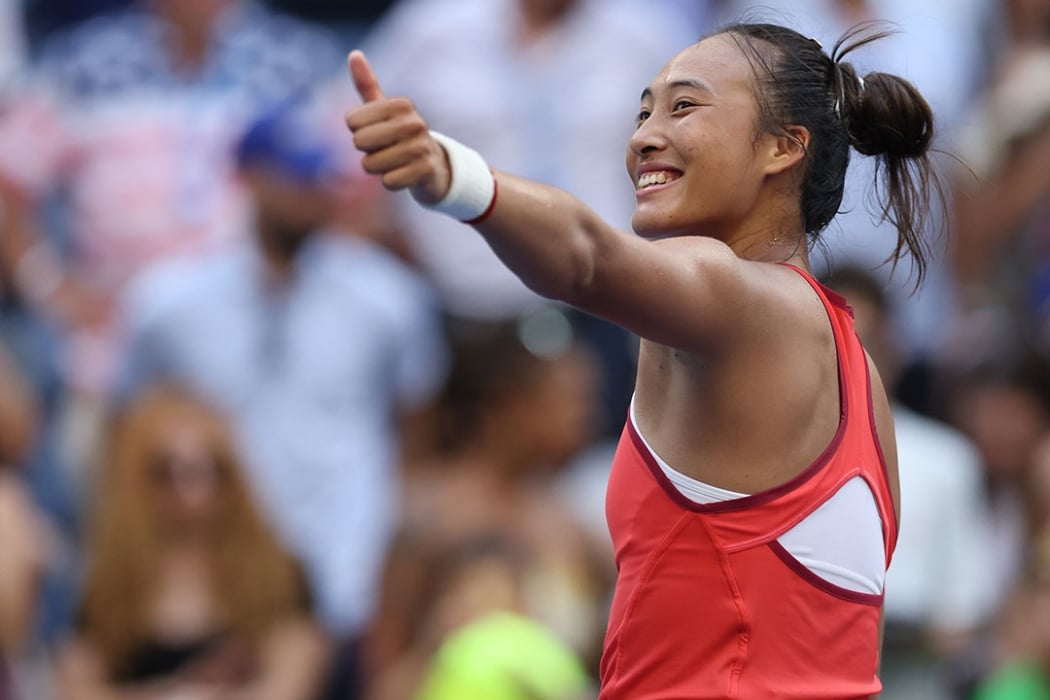It will be an Australian Open 2024 final rematch when Aryna Sabalenka and Zheng Qinwen come face-to-face on Wednesday for a place in the US Open semifinals.
In January it was Sabalenka who outplayed Zheng to defend her Australian Open title, and you could argue it’s now “Rod Laver Aryna” after the world No.2 extended her winning streak on the stadium court – where she hasn’t lost since 2021 – to 14 matches.
But since then, Zheng has hit new heights. She won Olympic gold for China with her recent victory in women’s singles at Paris 2024, snapping Iga Swiatek’s incredible 25-match unbeaten streak at Roland Garros along the way.
MORE: Rebounding from AO final, Zheng Qinwen wins Olympic gold for China
Zheng has now reached back-to-back quarterfinals at Flushing Meadows. Last year in New York, like the AO 2024 final, it was Sabalenka who stopped her.
The rising Chinese star is yet to take a set off Sabalenka – but she believes she’s a changed player.
“I think I read the ball better on court and compared to one year ago,” said Zheng, who has won 16 of her past 17 matches and sits at a career-high ranking of world No.7.
“I feel I'm more powerful, but I know better how to control the power, when to use the power and when to hold down a bit trying to play with the opponent. I think that's important for my game.
“I feel really proud for myself to making the [US Open] second week because I didn't have easy opponent, especially in the first round against [Amanda] Anisimova. She's really, really good player.
“It's typical match that I will fall there after big victories because I always been telling myself, no, you can't fall here. You need to keep yourself up. You need to keep fighting. I'm really happy that I have been through all the matches.
“For me, I work a lot on my mental side to keep myself strong, to keep myself hungry to play because I love to play here in New York.
“Also, I've been set higher target.”
Few targets get higher than Sabalenka, who has established herself as the best performer at Grand Slam level in the women’s game.
This marks her eighth consecutive appearance in a major quarterfinal, something no woman has managed since Serena Williams in 2017.
No woman this decade has reached more Slam quarterfinals than Sabalenka, who since 2020 has also won the most Slam matches, and attained the best winning percentage (90.5%) in Grand Slam play, of all women.
MORE: Will Aryna Sabalenka prove unstoppable at US Open 2024?
Despite success on all surfaces, she peaks on hard courts, demonstrated by her ongoing success at both the Australian and US Opens.
She has won 20 of her past 23 matches in New York – and 25 overall, more than any other Slam – and is eyeing a fourth consecutive US Open semifinal.
This century, only Kim Clijsters has notched 25 wins at the US Open in fewer matches than Sabalenka.
“Definitely I improved a lot… there was really tough lesson in that final match,” Sabalenka said of last year’s US Open final, which she lost from a set up to Coco Gauff.
“The whole preseason I was working a lot on the variation of my game, make sure I can come to the net, use my touch, slice, drop shots, and all that stuff. I think that's really helpful, and I think I improved a lot.
“Mentally I think since last year I'm much stronger. So many things happened. I think I improved in lots of different ways.”
Sabalenka, the WTA 1000 Cincinnati champion on a nine-match win streak, said her favourite thing about playing on hard courts was the boost the surface gave her on serve.
She’s slotted 19 aces so far this fortnight at Flushing Meadows, and in all bar one of her matches she has won approximately three-quarters of her first-serve points.
Yet Zheng, incredibly, leads this year’s US Open ace tally among women with 49 – 24 more than second-placed Donna Vekic.
Such firepower, coupled with the consistency of her astonishingly-heavy groundstrokes, could help her combat Sabalenka, arguably the game’s most powerful player.
A first win over one of the game’s biggest names would mark another milestone for the ascendant 21-year-old, whose profile continues to grow.
“I think after the Olympic Games, everybody in China start to know me. Because after Australian Open, maybe more the tennis fans, they know me,” Zheng reflected.
“I remember when I come back to the street in China, I have to put [on] my cap because if one recognise me, there will be a lot of people come to ask my signature.
“It's a lot of attention. I realise I have to behavior correctly, more responsibility. Of course, it's pressure, but also it's a chance for me to become a better player.”



